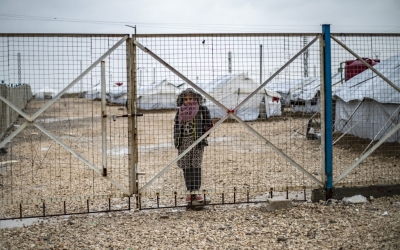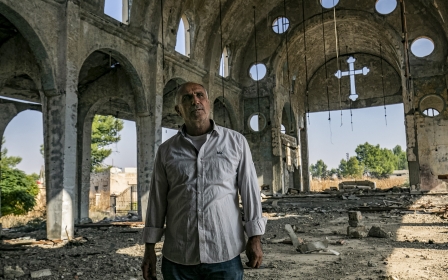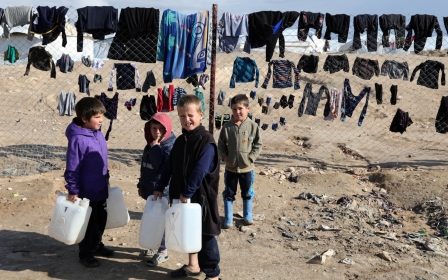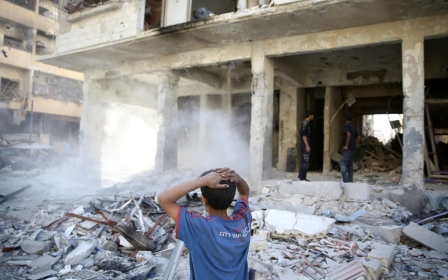Four-year-old Canadian girl released from Syrian detention camp
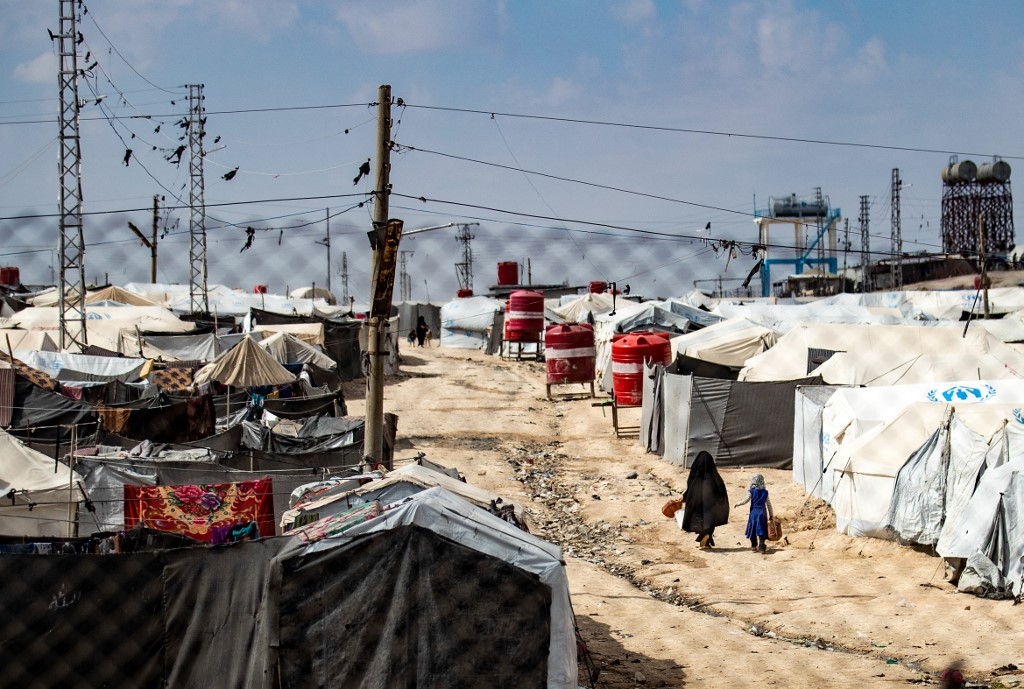
A four-year-old girl has been released from a detention camp in northeast Syria and is on her way to Canada without her mother, officials have said.
The release of the child, whose identity is being withheld, was secured through the efforts of her aunt and a former US diplomat, not through the Canadian government, Prime Minister Justin Trudeau said on Monday.
"This story was one where the family themselves took the initiative to bring the daughter to Canada. The mother remains in Syria. She's now with, I believe, an aunt or a relative," he said.
"The federal government facilitated the travel documents but this was something that was done by the family involved."
Peter Galbraith, the former US diplomat, said the child made it out of a camp in northeast Syria last Friday and would live with a relative in Canada.
"It's very tough to give up your child," Galbraith told CTV News. "She clearly was a very good mother and the evidence of that is that she put her child first and realised that it would be a disaster growing up in a prison camp in Syria and instead she gave the child a future."
The Canadian government has faced fierce criticism from human rights advocates for failing to repatriate its citizens who ended up in the Kurdish-run camps because of alleged ties to the Islamic State (IS) group.
Canada's Department of Foreign Affairs said in a statement to Middle East Eye that given the security situation on the ground, Ottawa's "ability to provide any kind of consular assistance in Syria remains extremely limited".
"Canadian consular officials are actively engaged with Syrian Kurdish authorities to seek information on Canadians in their custody," it said. "We continue to follow the situation very closely."
'Guilt by association'
According to rights groups, more than 40 Canadians are languishing in Kurdish detention camps following the defeat of the IS group.
Farida Deif, the Canada director for Human Rights Watch, told MEE that Ottawa was offering "excuses" for its dismal approach towards repatriating its nationals.
"The Canadian government no doubt fears the potential political fallout of bringing this specific group of Canadians home because of their suspected ties to ISIS," she said, using another spelling for the armed group.
"This is a failure of moral courage and political will with potentially deadly consequences for citizens trapped in these inhuman and life-threatening conditions."
More than 64,000 individuals, mostly women and children, are currently being held in detention camps in Syria where they reportedly face "violence, exploitation, abuse and deprivation in conditions and treatment that may well amount to torture" and other inhuman treatment under international law, according to the Office of the United Nations High Commissioner for Human Rights.
Fionnuala Ni Aolain, UN special rapporteur for the protection and promotion of human rights while countering terrorism, previously said that Canada, along with 56 other countries, was on a "list of shame" because it would not take active steps to repatriate its foreign nationals.
While Canada had previously secured the release of another young girl, Amira, authorities have done little to secure the release of any other children from the war-torn country.
"The Canadian government's response to these serious consular cases has been deeply troubling," Deif said.
"The arbitrary detention of these children solely on the basis of their families' suspected ties to ISIS amounts to guilt by association and collective punishment prohibited under international law."
Middle East Eye propose une couverture et une analyse indépendantes et incomparables du Moyen-Orient, de l’Afrique du Nord et d’autres régions du monde. Pour en savoir plus sur la reprise de ce contenu et les frais qui s’appliquent, veuillez remplir ce formulaire [en anglais]. Pour en savoir plus sur MEE, cliquez ici [en anglais].


